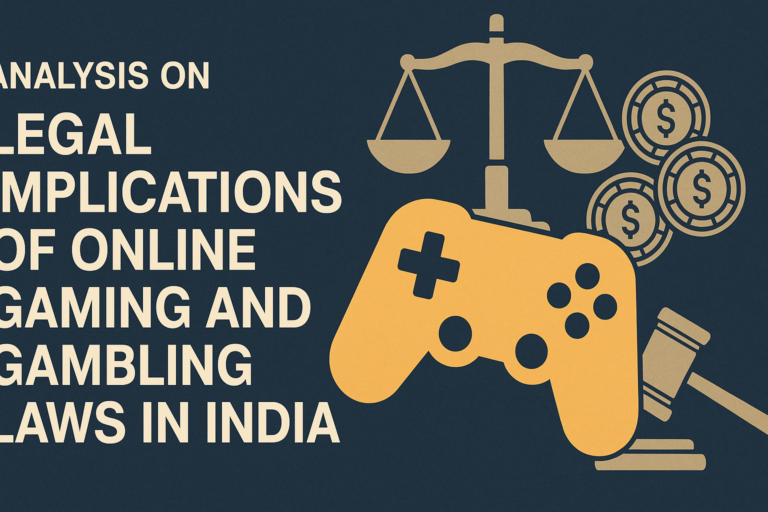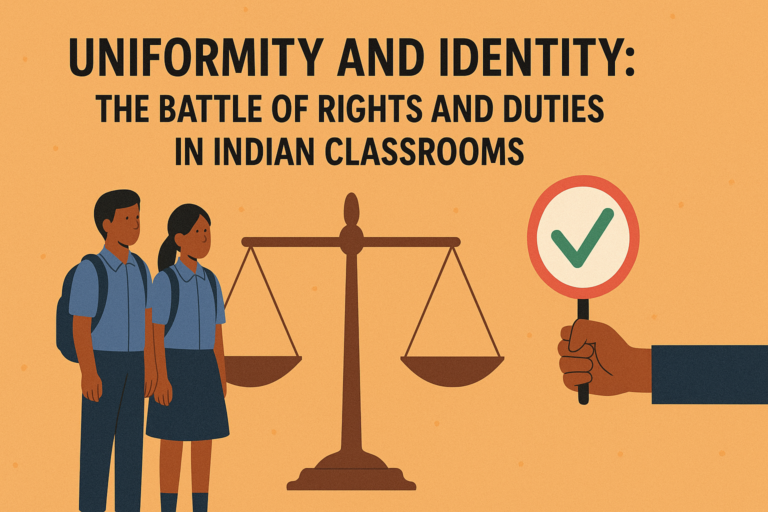
This article has been written by Faiza M, currently in fourth year pursuing a BBA LLB (Hons.) at Crescent University, Chennai.

X v State of Kerala and Anr 2024 (Woman’s Partner, His Relatives Can’t Be Prosecuted For Cruelty In Absence Of Legal Marriage: Kerala High Court)
Petitioner: X (name undisclosed in public records)
Respondent: State of Kerala and another party
Citation: X v State of Kerala and Anr 2024, CRL.MC NO. 2654 OF 2024
Date of Judgment: July 12, 2024
Hon’ble Judge: Justice A. Badharudeen
Introduction:
In X v State of Kerala and Anr, 2024, the Kerala High Court issued a key decision that established the reach of Section 498A of the Indian Penal Code (IPC). This law criminalizes a husband’s or his relatives’ abuse to a married lady. The court ruled that in the absence of a legally recognized marriage, the accused cannot be prosecuted under Section 498A. This decision emphasizes the need of having a legally valid marriage in order to invoke the protections provided by this section, and it has far-reaching ramifications for instances involving allegations of domestic abuse in informal or defunct marriages. It emphasizes the legal parameters within which marital status must be proven before pursuing criminal charges.
Facts:
The petitioner in X v. State of Kerala was in a live-in relationship with a woman between March and August 2023. During their relationship, the woman accused the petitioner of harassing her mentally and physically. Following her complaint, criminal proceedings were launched against the petitioner under Section 498A of the Indian Penal Code (IPC). This clause expressly covers cruelty done on a woman by her husband or his relatives, making such behavior a criminal offense. The petitioner argued that the application of Section 498A was inappropriate for their situation because he was not lawfully married to the complainant. As a result, he filed an application with the Kerala High Court to have the proceedings against him under this section quashed.
Issues:
- whether Section 498A of the IPC, which criminalizes cruelty by a husband or his relatives against a wife, may be expanded to cover live-in partners?
- whether the complainant, who is in a live-in relationship, could claim the same legal protection against cruelty as a lawfully married wife under Section 498A IPC.
The Kerala High Court’s observations were critical In addressing these questions and establishing a legal distinction between the rights of women in marital and non-marital relationships under Section 498A.
Arguments of the Petitioner:
The petitioner’s lawyers concentrated their arguments on a few key points:
- The petitioner stated that Section 498A of the IPC covers “husbands” and their families as a legal requirement for marriage. Since the marriage had been deemed null and void, the petitioner could not be considered a husband under the law.
- The counsel emphasized the importance of strictly interpreting Section 498A based on previous cases. Previous courts held that only legally recognized marriages might utilize the provisions of this section.
- The petitioner stated that extending the provision to encompass invalid marriages contradicted legislative purpose. Section 498A was designed to address certain abuses that occur within the context of a legally acknowledged marital partnership.
- The counsel emphasized that interpreting the statute to include informal or void marriages would go beyond the constitutional mandate of criminal law, perhaps leading to misuse.
Arguments of the Respondents:
However, the complainant, who was the respondent, made arguments that centered on the nature of the relationship and the wider ramifications of exempting non-traditional marriages from Section 498A’s provisions:
- Marital Resemblance: The complaint claimed that their partnership, while deemed void, had all the characteristics of a typical marriage, such as cohabitation and shared duties.
- Broader Legal Interpretation: It was proposed that the interpretation of legislation such as Section 498A IPC be expanded to suit contemporary circumstances in which not all relationships correspond to conventional norms but nevertheless require legal protection.
- Potential Social Harm: Respondents argued that barring invalid or informal marriages from the scope of Section 498A IPC would leave many women without redress against cruelty, particularly in communities where traditional procedures of registration and recognition are sometimes neglected.
- Judicial Consideration of justice: The complaint urged the court to use the concept of justice in ensuring that legal protection extends to all unions that operate as marriages.
Court’s Reasoning:
The Kerala High Court’s conclusion was based on statutory interpretation and the legislative aim of Section 498A IPC:
- The court emphasized that criminal statutes should be strictly interpreted. Section 498A expressly covers cruelty from a husband or his relatives, meaning that a legally established marriage is required.
- The court clarified that the petitioner was not considered a husband because the marriage was void from the start. Therefore, the Bench held, “Since the marriage has been declared as null and void and failure to satisfy the conditions of the marriage, then there is no legal marriage in the eye of law.”
- The court argued that applying Section 498A IPC to a void marriage would go beyond its legislative intent and undermine the regularity of criminal law.
- The judgment stressed the importance of maintaining statutory boundaries throughout criminal proceedings. Extending Section 498A IPC to include non-legal marriages will obscure the distinction between legitimate and informal unions, thus leading to legal uncertainties and unfairness.
Precedent Analysis:
The Kerala High Court’s ruling aligns with previous interpretations of Section 498A and related provisions:
- Lalita Toppo v. State of Jharkhand (2019):[1]
The case of Lalita Toppo v. State of Jharkhand (2019) is critical in broadening the interpretation of the Protection of Women from Domestic Violence Act, 2005 (PWDVA). In this decision, the Supreme Court of India considered whether the Act’s protective measures might extend beyond traditionally recognized marriage unions. It specifically looked into whether women in non-marital relationships that mimic marriage might seek redress through the PWDVA.
The petitioner, Lalita Toppo, sought remedy under the PWDVA, claiming that, while not being lawfully married, she was subjected to domestic violence and needed the Act’s protections. Taking into account the spirit and purpose of the Act, the Supreme Court confirmed that the PWDVA is a civil statute designed to provide immediate remedy and protection to women who have experienced domestic abuse. The decision emphasized that the Act applies to women in partnerships similar to marriage, not just married women. This broad view is consistent with the legislature’s goal to protect women from violence and ensure their rights in domestic situations, regardless of official marriage status.
However, the court distinguished between civil protections and criminal responsibility. The PWDVA offers victims urgent and rehabilitative support through civil remedies such as protection orders, residency privileges, and monetary relief. The decision highlighted that seeking these civil safeguards under the PWDVA does not automatically result in criminal culpability under other legislation, such as the Indian Penal Code (IPC).
This historic ruling emphasized the Act’s comprehensive approach, stating that the scope of domestic abuse statutes should be tailored to the socioeconomic realities of varied marital arrangements. The court emphasized that limiting protection based on the absence of a legal marriage would undermine the legislative objective to protect women’s rights broadly. This decision was thus an important step toward recognizing the diversity of modern domestic relationships and providing stronger legal protections for women against domestic violence.
This case explored the Domestic Violence Act’s broader application, with a focus on protecting women in partnerships that are not legally married. However, the distinction between civil and criminal culpability was clarified.
- Yuvraj v. State of Chhattisgarh (2020):[2]
Yuvraj v. State of Chhattisgarh (2020) is a key decision that underlines the importance of strict interpretation in criminal law. In this decision, the Supreme Court of India addressed an important legal principle: criminal statutes must be read narrowly to minimize judicial overreach and potential abuse of authority. In this case, the petitioner, Yuvraj, contested the enforcement of various punitive provisions against him, claiming that their interpretation went beyond what the law specifically meant. The basis of the argument was founded on the idea that criminal responsibility cannot be imputed and that any ambiguity in criminal statutes must be addressed in favor of the defendant.
The court, in considering the case, stressed that the judiciary must exercise caution when interpreting criminal legislation, ensuring that penal provisions be applied rigorously according to their text. The court emphasized that broadening the scope of criminal provisions beyond their plain and explicit text could result in unforeseen effects, such as wrongful prosecution and potential abuse of the judicial system.
The Supreme Court emphasized that the principle of nullum crimen sine lege (no crime without law) is the foundation of criminal jurisprudence. This principle ensures that persons are not exposed to arbitrary application of criminal law and are only penalized for behavior that is clearly designated as an infraction by statute. The court also cautioned against broadening penal prohibitions or criminalizing conduct that are not clearly covered by the legislation.
This decision has far-reaching repercussions for the administration of criminal justice. It serves as a reminder that judicial interpretation must protect individual rights and promote due process by following the plain word of the law. The decision in Yuvraj v. State of Chhattisgarh emphasizes the importance of judicial discretion in preventing excess and potential misuse, so maintaining the balance between upholding the law and protecting individuals’ rights from arbitrary prosecution.
This case demonstrated that criminal prohibitions must be read carefully. The court emphasized that extending penal rules beyond their clear wording could result in excess and misuse.
- State of A.P. v. M. Madhusudhan Rao (2008):[3]
State of A.P. v. M. Madhusudhan Rao (2008) is a significant case in Indian jurisprudence that emphasizes the notion of strict interpretation of penal statutes. The Supreme Court’s decision in this case reaffirmed that any uncertainty in criminal law should be resolved in favor of the accused, following the maxim dubio pro reo.
The case contained charges against the respondent, M. Madhusudhan Rao, under particular sections of the Indian Penal Code (IPC). The central issue in the Supreme Court appeal was whether the implementation and interpretation of these criminal provisions were consistent with recognized legal principles. The defense argued that the ambiguity in interpreting certain sections of the penal code required a restricted reading to avoid unfair punishment.
The Supreme Court’s decision emphasized the importance of properly interpreting criminal law. This means that if the text of a statute is unclear or capable of several readings, the interpretation that benefits the accused should be used. The rationale for this principle is that criminal culpability has serious repercussions, including the denial of liberty, and hence only conduct that is clearly and unequivocally prohibited by law should result in punishment.
The court emphasized that enlarging the scope of a criminal statute through judicial interpretation could result in arbitrary enforcement, violating citizens’ basic rights. This method is consistent with the principle of nullum crimen sine lege, which ensures that individuals are not penalized for conduct that do not clearly constitute an infraction under current laws.
In State of A.P. v. M. Madhusudhan Rao, the Supreme Court stated unequivocally that judicial inventiveness had no place in criminal law, where personal freedom and reputation are at stake. The ruling emphasized that, while courts play an important role in interpreting legislation, their interpretations must not extend criminal culpability beyond what the legislature intended.
This case serves as a model for safeguarding individuals against potential overreach in criminal prosecution. It cautions the judiciary to exercise prudence, ensuring that only conduct expressly covered by statute wording results in criminal penalties. The verdict preserves the values of justice and due process, which are essential components of a fair judicial system.
The Supreme Court maintained that criminal laws should be construed strictly and that ambiguity in penal statutes must be resolved in favor of the accused.
- Shivcharan Lal Verma and Others v. State of Madhya Pradesh[4]
In a three-judge decision announced in Shivcharan Lal Verma and Others v. State of Madhya Pradesh, the Supreme Court ruled that a valid marital tie between the accused and the victim is required for a prosecution under Section 498A of the IPC. This is a case in which a second wife committed suicide, allegedly as a result of her husband’s and ex-wife’s abuse. In this case, the victim’s marriage to the offender was declared void from the start.
These decisions demonstrate that, while civil laws may provide broader protective interpretations, criminal measures such as Section 498A IPC must comply to stricter requirements regarding the state of marriage.
Judgment:
The Kerala High Court concluded that because the marriage was null from the start, the petitioner could not be prosecuted under Section 498A IPC. The court underlined that prosecuting someone without completing the legal requirements would violate the idea of legality in criminal law. The petition was granted, essentially shielding the petitioner and his kin from future criminal prosecution.
Analysis:
The decision has far-reaching consequences for future cases involving similar conditions.
- The Court clarifies that Section 498A IPC exclusively applies to lawfully recognized marriages, limiting misuse of the statute. This is critical to ensuring that the legal system remains clear and predictable.
- The verdict safeguards individuals against unfair prosecution, but it also reveals a loophole in the legal system for those in non-traditional or informal partnerships who may experience abuse and lack access to legal action under Section 498A IPC.
- The court’s conclusion strikes a balance between adhering to the statutory structure and preventing overly broad criminal law. However, it raises concerns about the need for legal revisions to address women’s protections in domestic relationships other than marriage.
- Potential Legal Reforms: This case may lead to legislative changes. Lawmakers may consider amending the IPC or enacting additional laws to safeguard those in partnerships resembling marriage, ensuring that they are not left vulnerable to cruelty and abuse.
Conclusion:
The Kerala High Court’s decision in X v State of Kerala and Anr, 2024 clarified the scope of Section 498A IPC, emphasizing the importance of a legally legitimate marriage as a requirement for using this section. This decision, although sparing the accused from charges that are not supported by statutory criteria, also reveals a fundamental gap in the legal system surrounding informal or void marriages. The case is an opportunity for legislative reconsideration to close this gap and provide proper protection to vulnerable individuals in partnerships that do not match standard legal criteria but function similarly. Finally, the decision emphasizes the importance of striking a balance between legal accuracy and shifting social reality.
References:
- Lalita Toppo v. State of Jharkhand, (2019) 13 SCC 796.
- Yuvraj v. State of Chhattisgarh, 2020 (Cr.) No.332 of 2020
- State of A.P. v. M. Madhusudhan Rao, (2008) 15 SCC 582.
- Section 498A, Indian Penal Code, 1860.
- Shivcharan Lal Verma and Others v. State of Madhya Pradesh [2002 (2) Crimes 177 SC: JT 2002 (2) SC 641]
- Chandu v. State of Kerala, 2017(4) KHC 356
- Narayanan v. State of Kerala, 2023 (6) KHC 427
[1] Lalita Toppo v. State of Jharkhand, (2019) 13 SCC 796.
[2] Yuvraj v. State of Chhattisgarh, 2020 (Cr.) No.332 of 2020
[3] State of A.P. v. M. Madhusudhan Rao, (2008) 15 SCC 582.
[4] Shivcharan Lal Verma and Others v. State of Madhya Pradesh, 2002 (2) Crimes 177 SC: JT 2002 (2) SC 641






